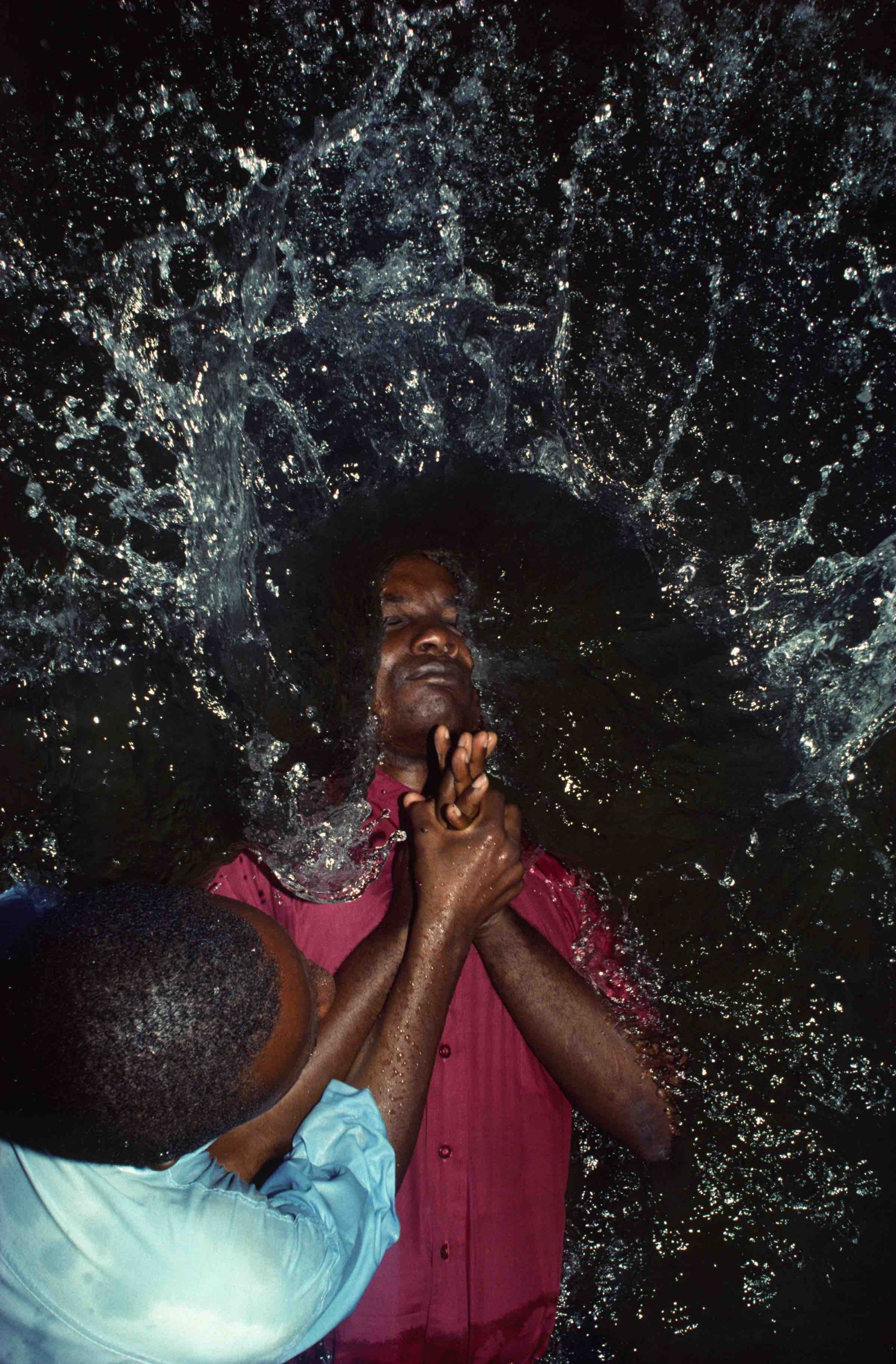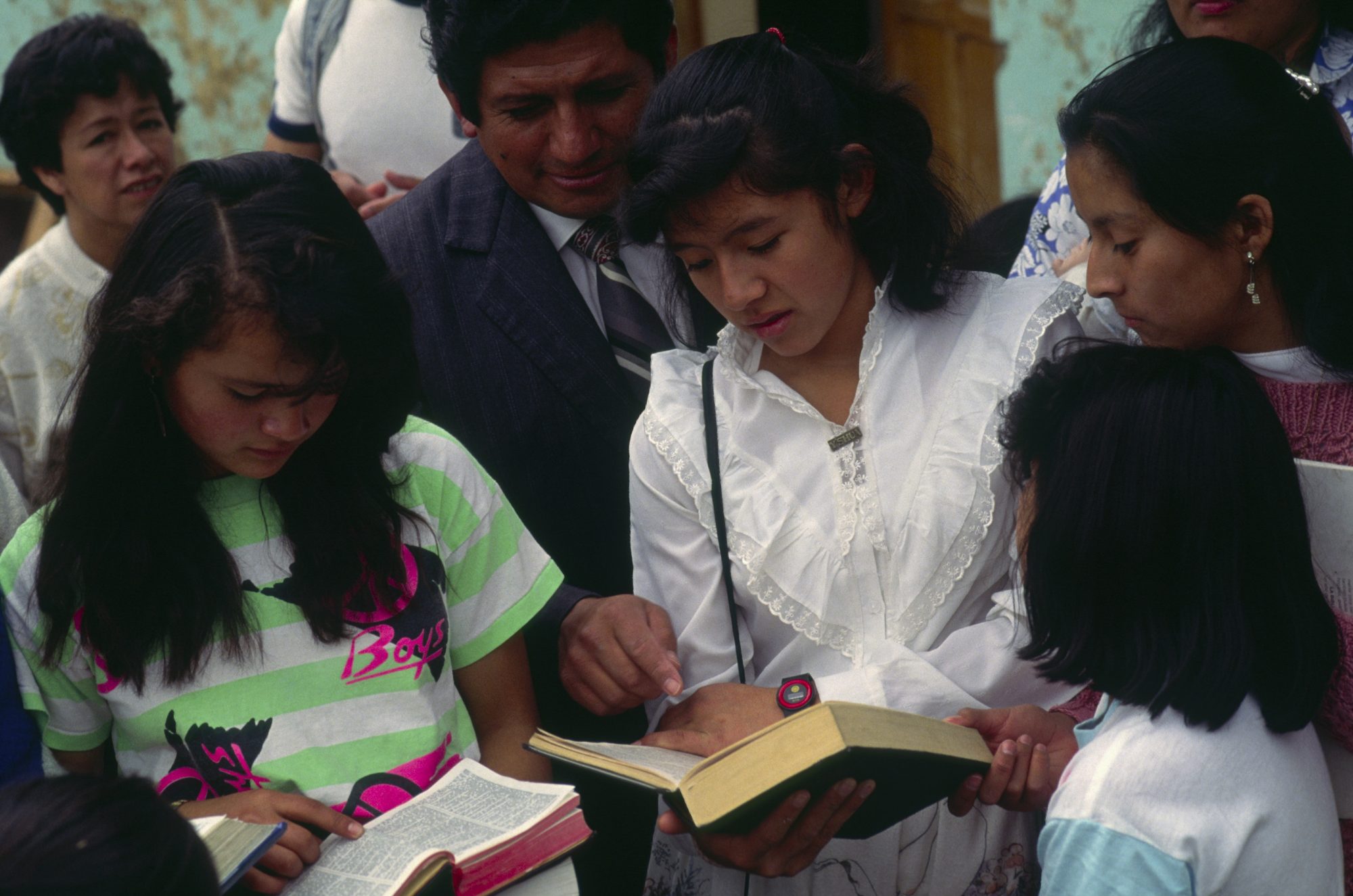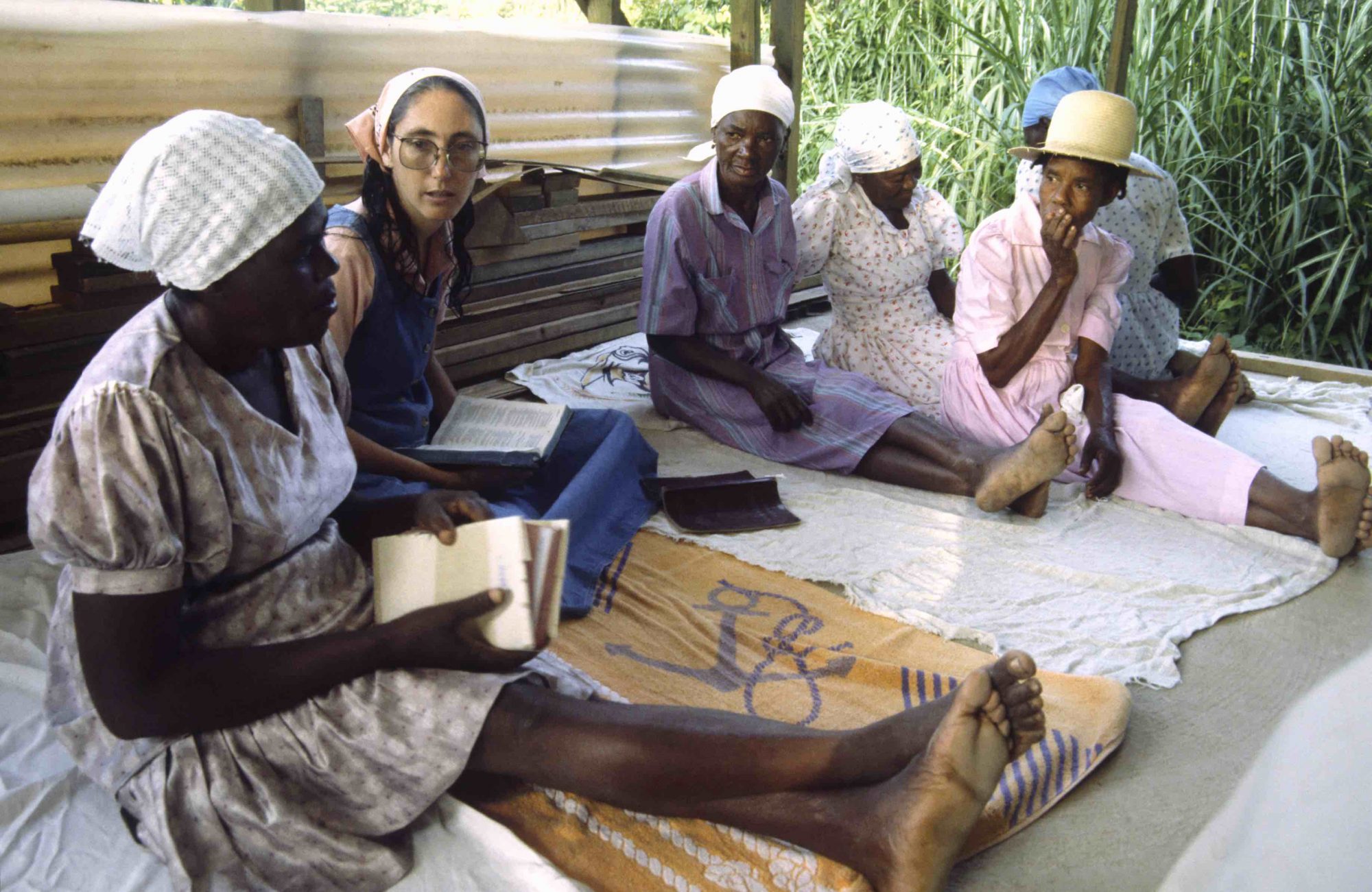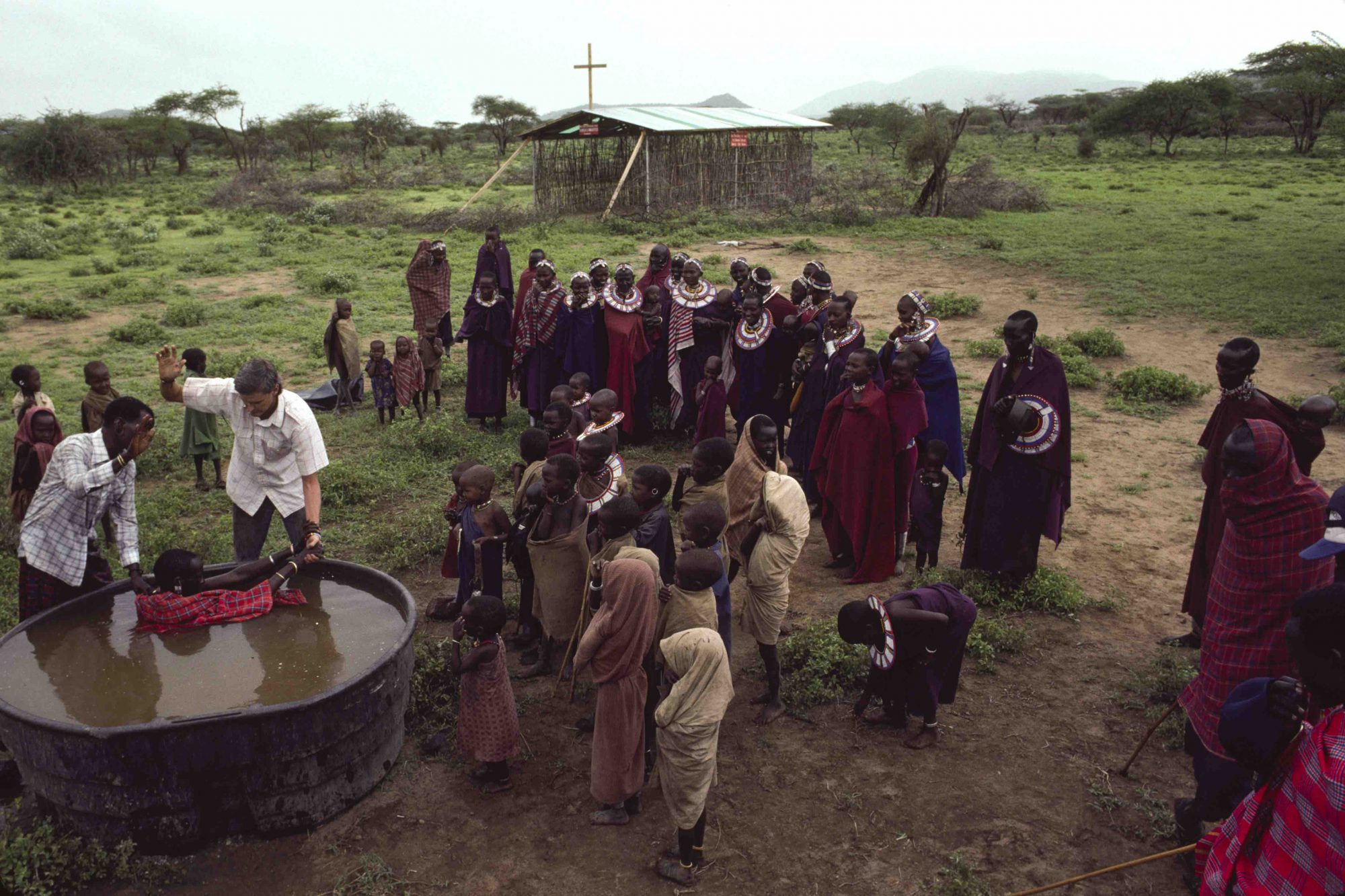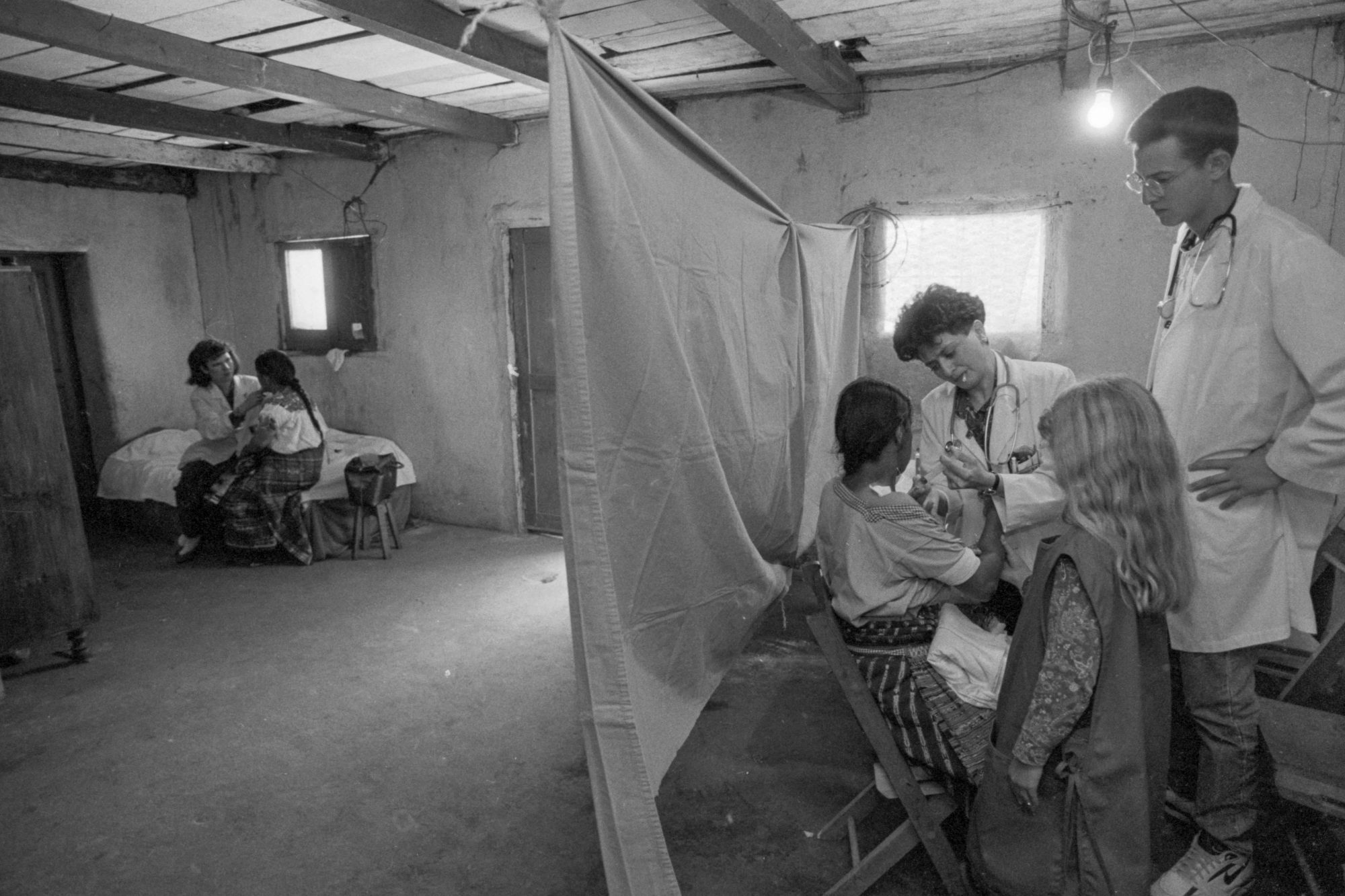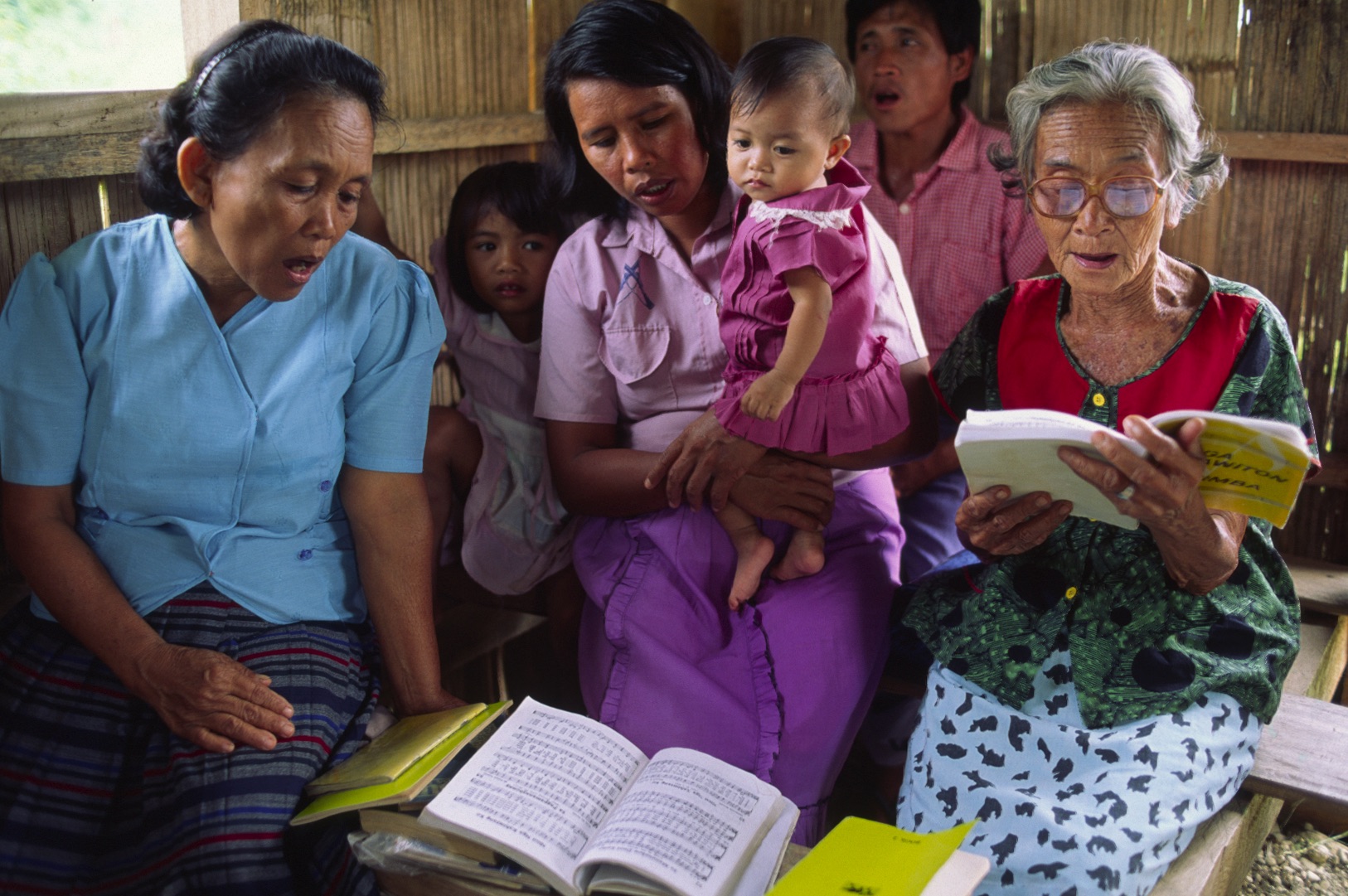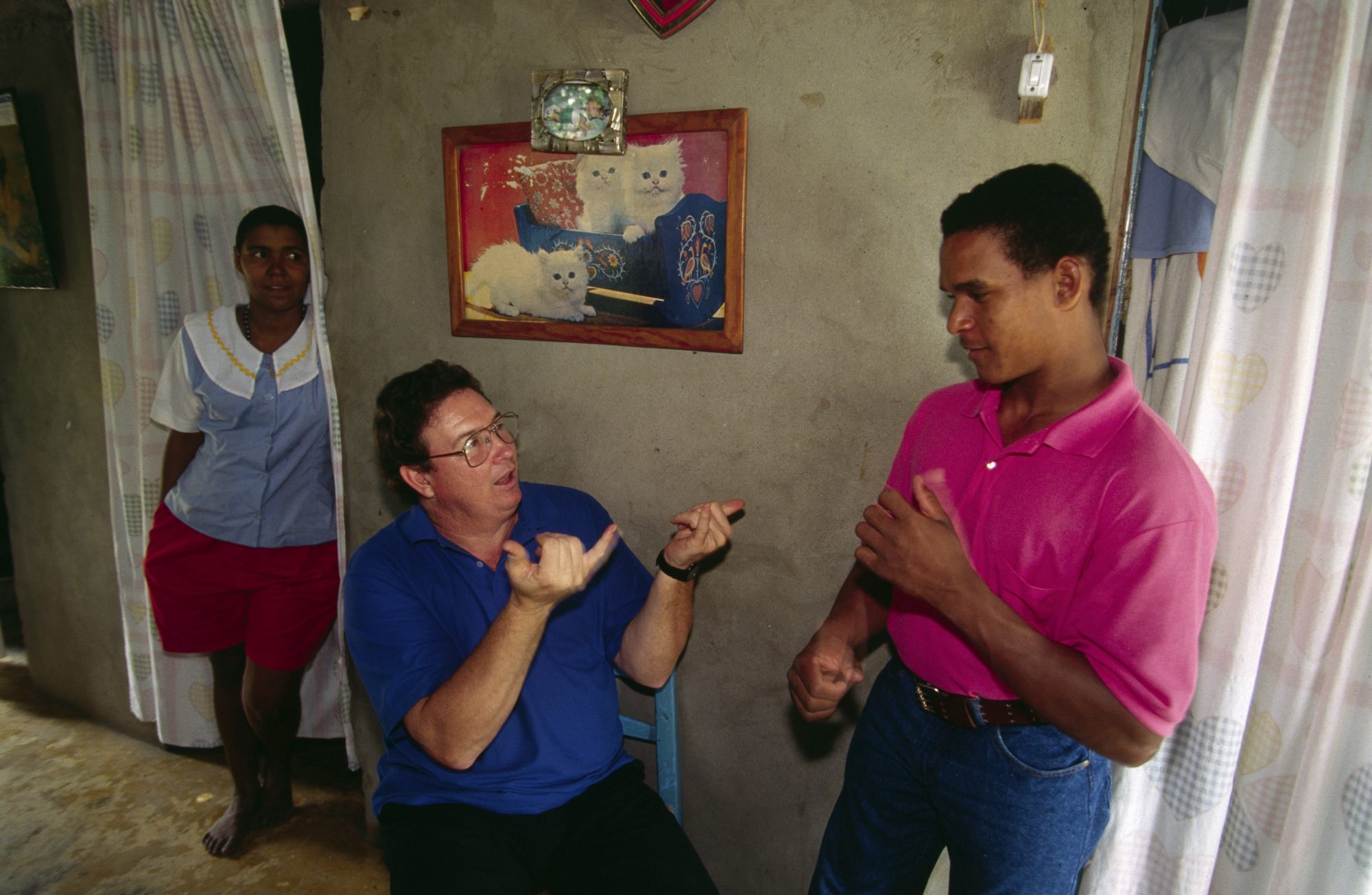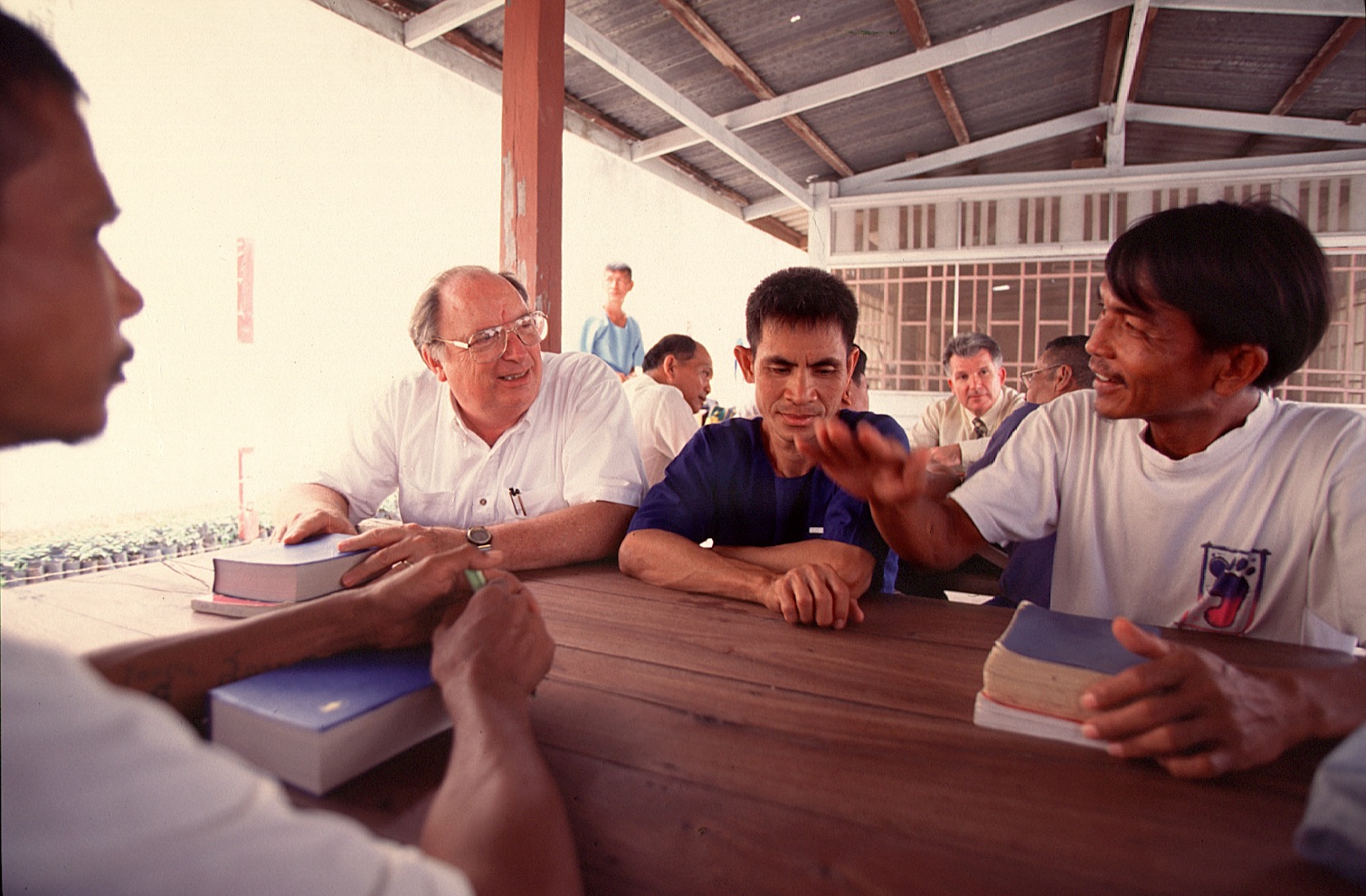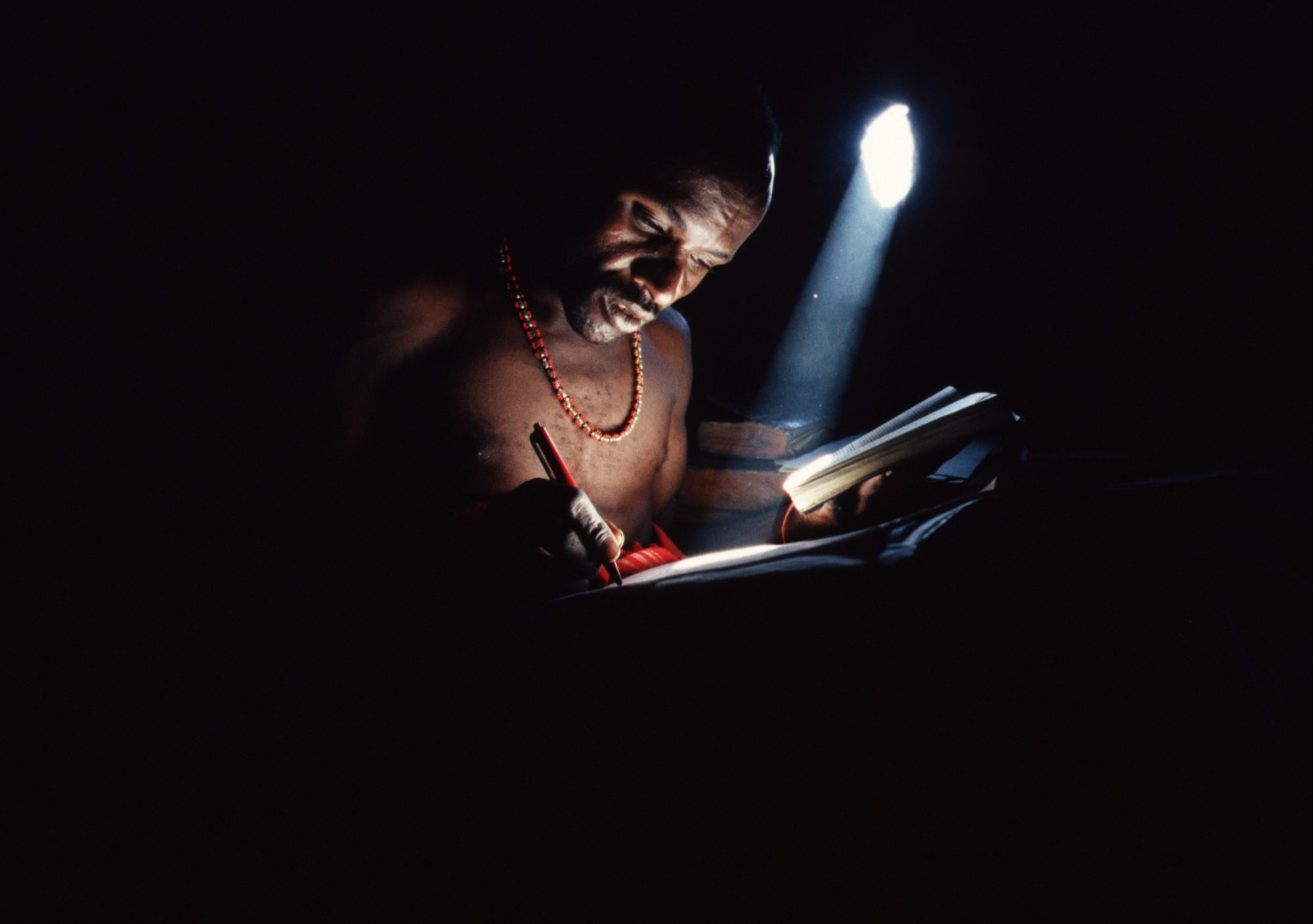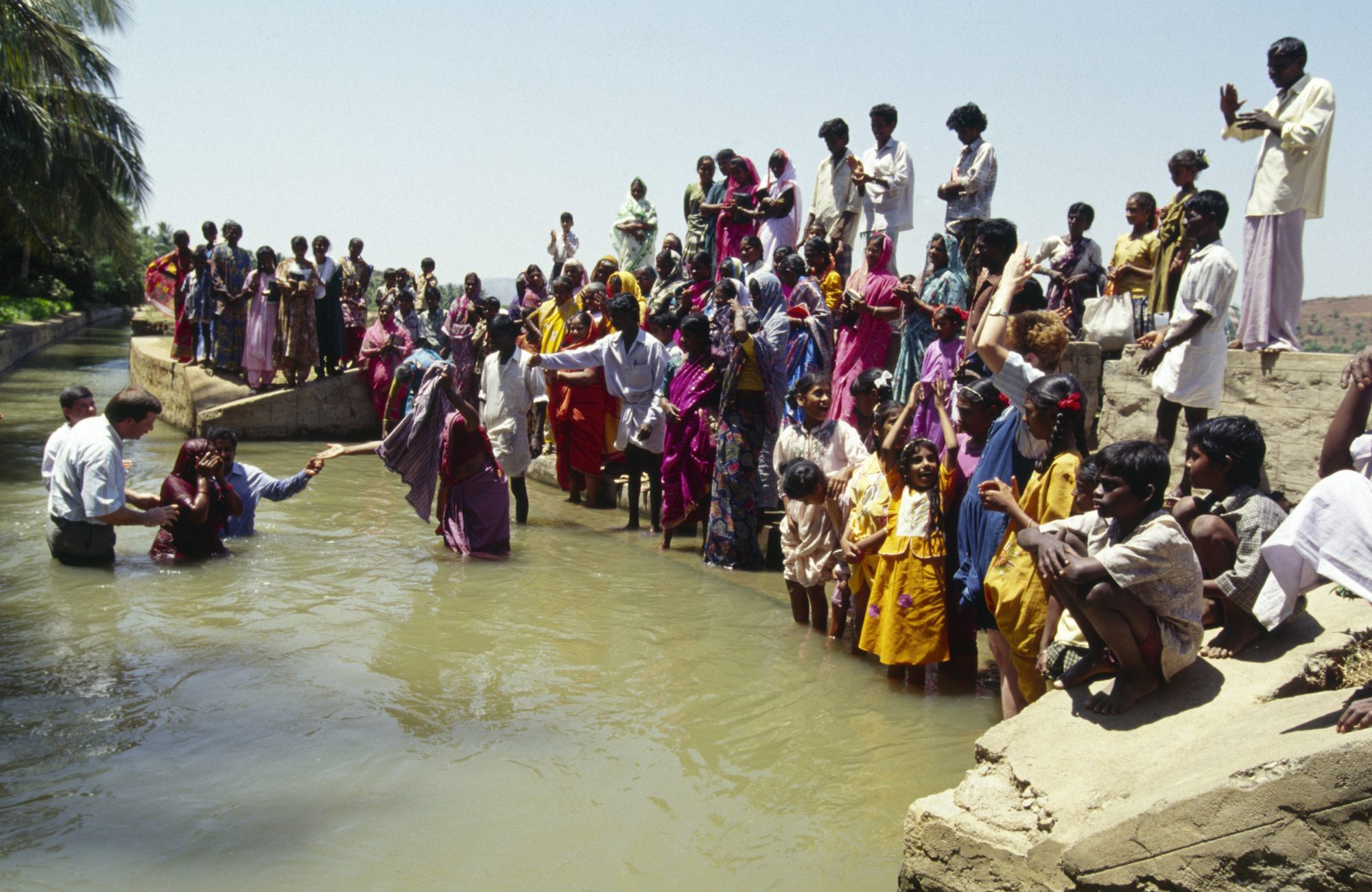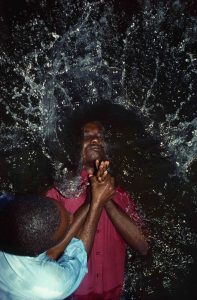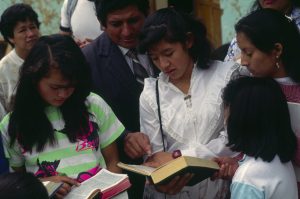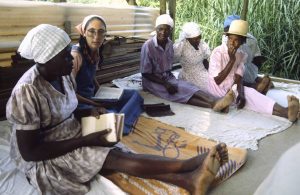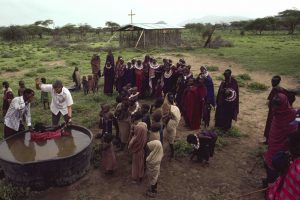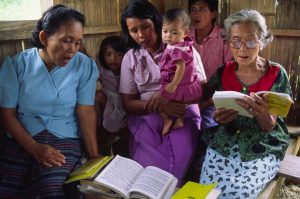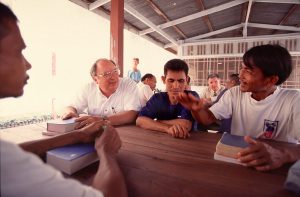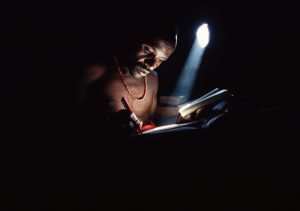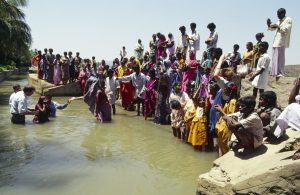1990s
Mission strategies shifted from a focus on traditional institutions to unreached people groups and church planting movements as the organization’s name changed from Foreign Mission Board to International Mission Board.
The 1990s were a decade of significant paradigm shifts within the Foreign Mission Board, whose name changed to the International Mission Board in 1997. Many missionaries served in nations with significant numbers of churches and Christians, often holding roles like pastors, doctors and educators in board-funded institutions. Although good work was happening, thousands of unreached people groups still did not have access to the gospel. Southern Baptists began realizing that although the world is made up of almost 200 countries, missiologically it is better understood by its 11,756 people groups — ethno-linguistic groups with a common self-identity shared by their members. The gospel often does not transmit from one people group to another, so even if one or two groups within a nation are evangelized, others still might be “unreached.”
In 1997 IMB leaders Jerry Rankin and Avery Willis announced New Directions, a strategy for getting the gospel to every people, tribe and language. Within four years, the number of people groups engaged by IMB personnel increased from 584 to 1,015. The goal was to start church planting movements: rapid multiplications of indigenous churches planting churches that sweep through a people group or population segment.
The IMB also emphasized the direct involvement of all Southern Baptists in fulfilling the Great Commission. Rankin did not consider the IMB responsible for “doing missions” on behalf of Southern Baptists; he knew every church and Christian must play their part. There was an increase in IMB-sponsored short-term mission trips, and programs started so churches could pray for a people group and work alongside missionaries to take the gospel to them.
IMB Milestones
Significant Ministry Events
Jerry Rankin Elected Executive Leader
Former missionary to Indonesia and field strategy leader Jerry Rankin was elected president of the Foreign Mission Board. Rankin accelerated the mobilization of Southern Baptist churches for world missions and emphasized strategic partnering with other Great Commission Christians to evangelize all remaining unreached people groups.

‘New Directions’ Launched People Group Focus
The Foreign Mission Board adopted “New Directions,” a comprehensive strategy for reaching every people, tribe and language group. Church planting movements became a major strategy for reaching all peoples. The result was the reassignment of over 50 percent of missionary personnel to the direct engagement of unreached people groups.
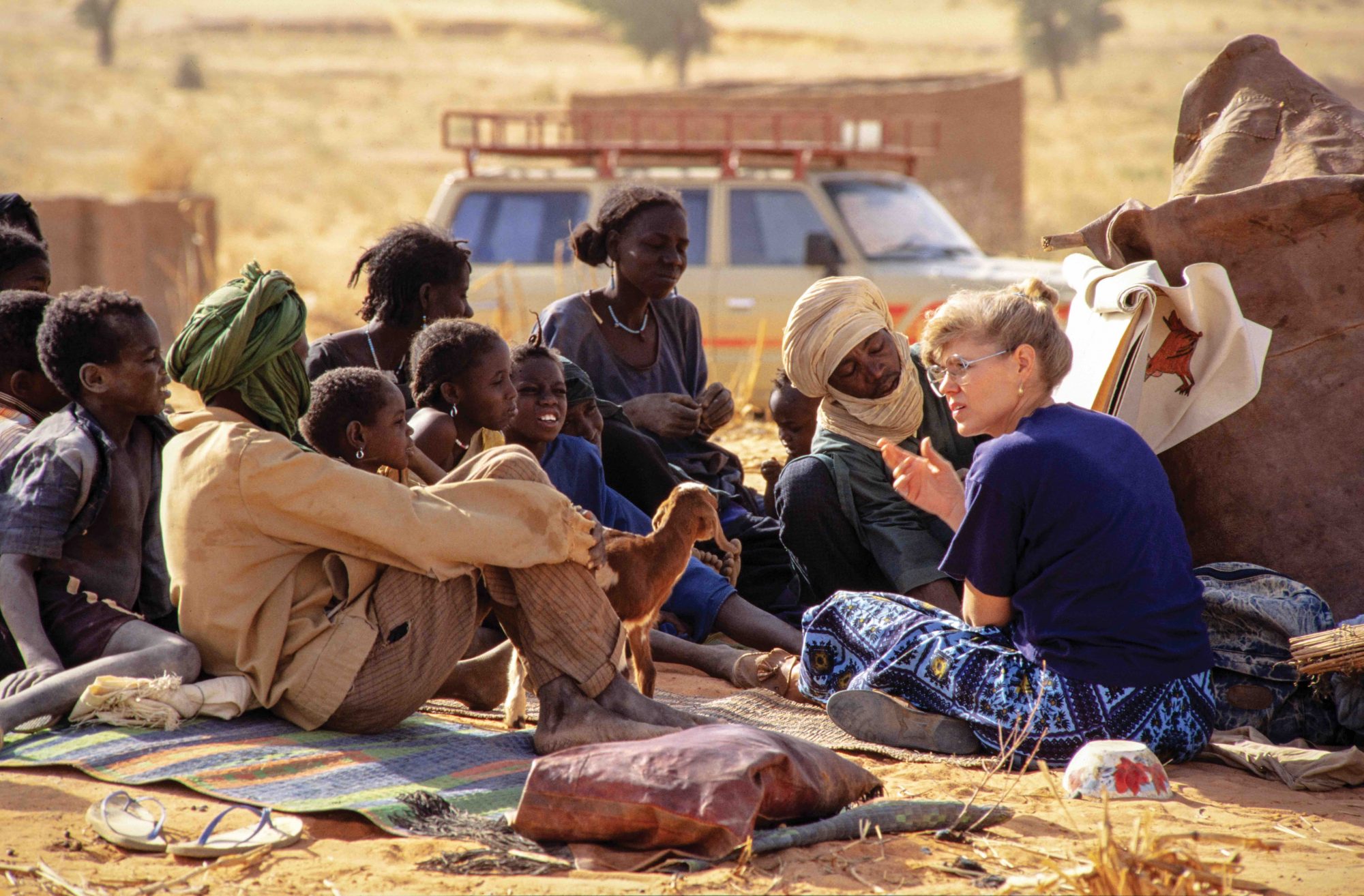
Name Changed to International Mission Board
The Southern Baptist Convention recommended that the Foreign Mission Board change its name to the International Mission Board, based on concerns the term “foreign” implied missionaries are natural and others are different. The word “international” better indicated the gospel is natural for all peoples of the world.
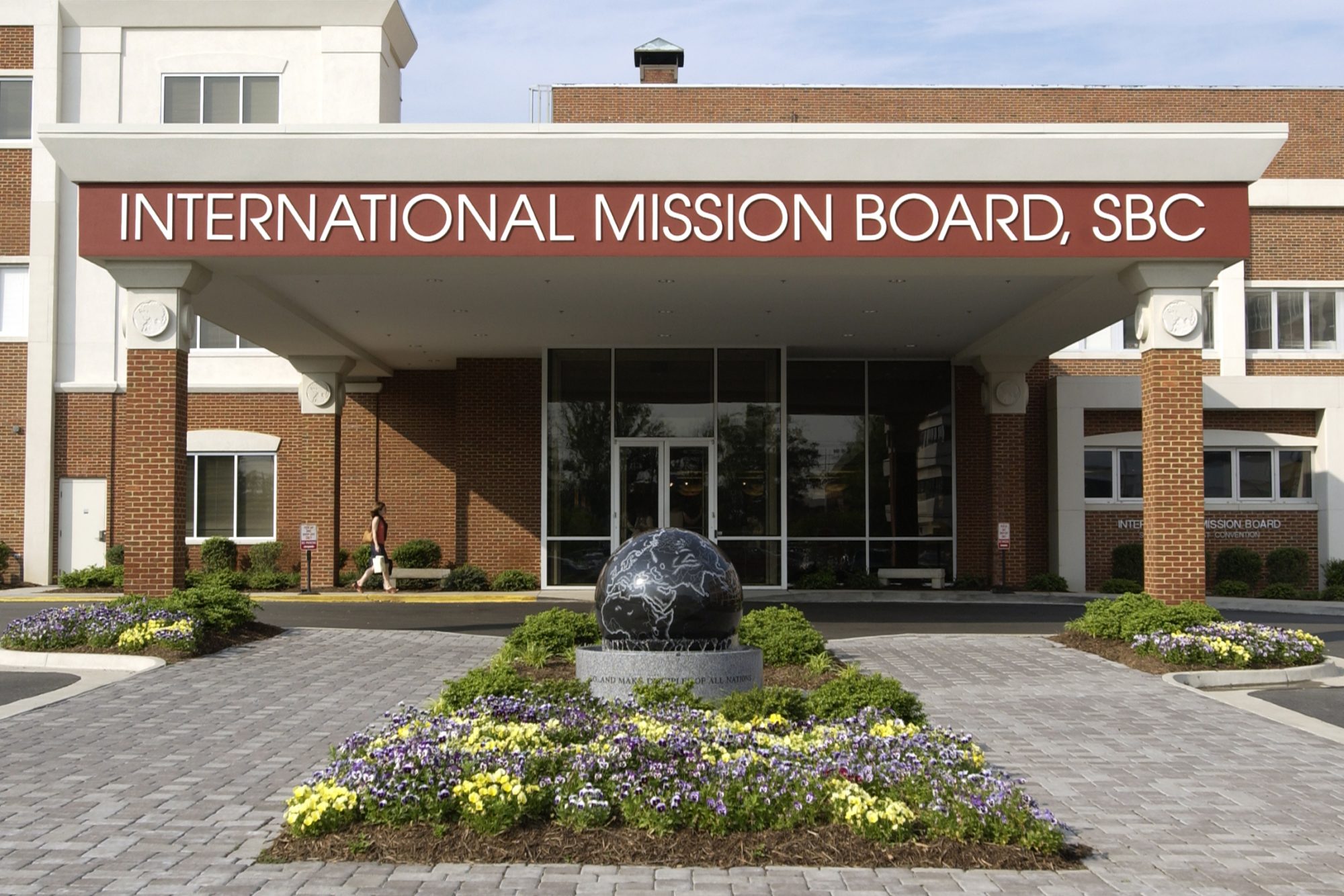
Annual Offering Receipts Surpassed $100 Million
Annual receipts for the Lottie Moon Christmas Offering® surpassed $100 million for the first time.

Missions in Context
Major World Events
Nelson Mandela Released from Prison
After spending 27 years behind bars for crimes against South Africa’s apartheid government, Nelson Mandela was released from prison. Mandela and South African President F.W. de Klerk, who worked to end the apartheid system, were joint recipients of the Nobel Peace Prize in 1993. In 1994, a multi-racial government was established, and Mandela was elected president in the nation’s first free elections.

U.S. Fought in Persian Gulf War
On August 2, 1990, Iraq invaded neighboring Kuwait, causing the U.S. and other coalition forces, including Saudi Arabia and Egypt, to mount an attack to liberate Kuwait. Although considered a decisive victory for the coalition and a successful campaign for President George H.W. Bush, Iraqi President Saddam Hussein remained in power, eventually leading to the Iraq War in 2003. During the Persian Gulf War, live coverage of war was televised worldwide for the first time.
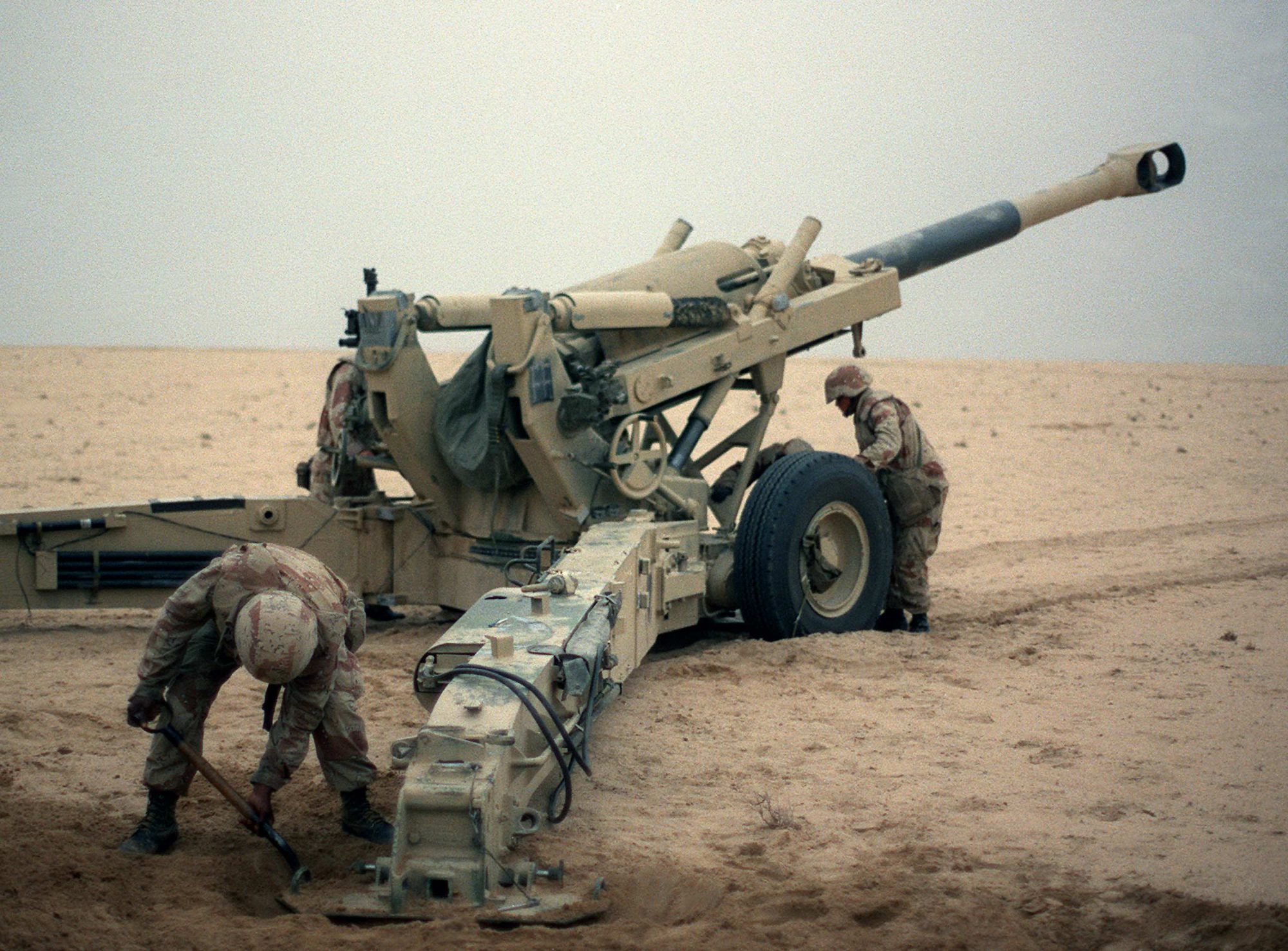
World Wide Web Launched
On August 6, 1991, Tim Berners-Lee introduced the World Wide Web to the public, sparking a digital revolution and connecting the world like never before. In 1994, Jeff Bezos started Amazon.com as an online bookstore from his garage. It expanded rapidly and surpassed Walmart in 2019 as the world’s largest retailer. In 1998, the Amazon creator invested in the introduction of Google, created by Ph.D. students at Stanford University, which started as an internet search engine and has grown to be a much more diverse multinational technology company.

Bosnian War Fought in Former Yugoslavia
In the early 1990s, as communism fell in Eastern Europe, the former Federal People’s Republic of Yugoslavia dissolved into six countries: Bosnia-Herzegovina, Croatia, Macedonia, Montenegro, Serbia and Slovenia. From 1992 to 1995, there was severe fighting along religious and ethnic lines between Bosnian Muslims (Bosniaks), Orthodox Christian Serbs and Catholic Croats. The Serbian forces sought to exterminate Bosniaks and Croatians in an attempt to become part of Greater Serbia, killing upwards of 100,000 civilians, mostly Bosniaks, and displacing millions before the Dayton Agreement ended the war in December 1995.
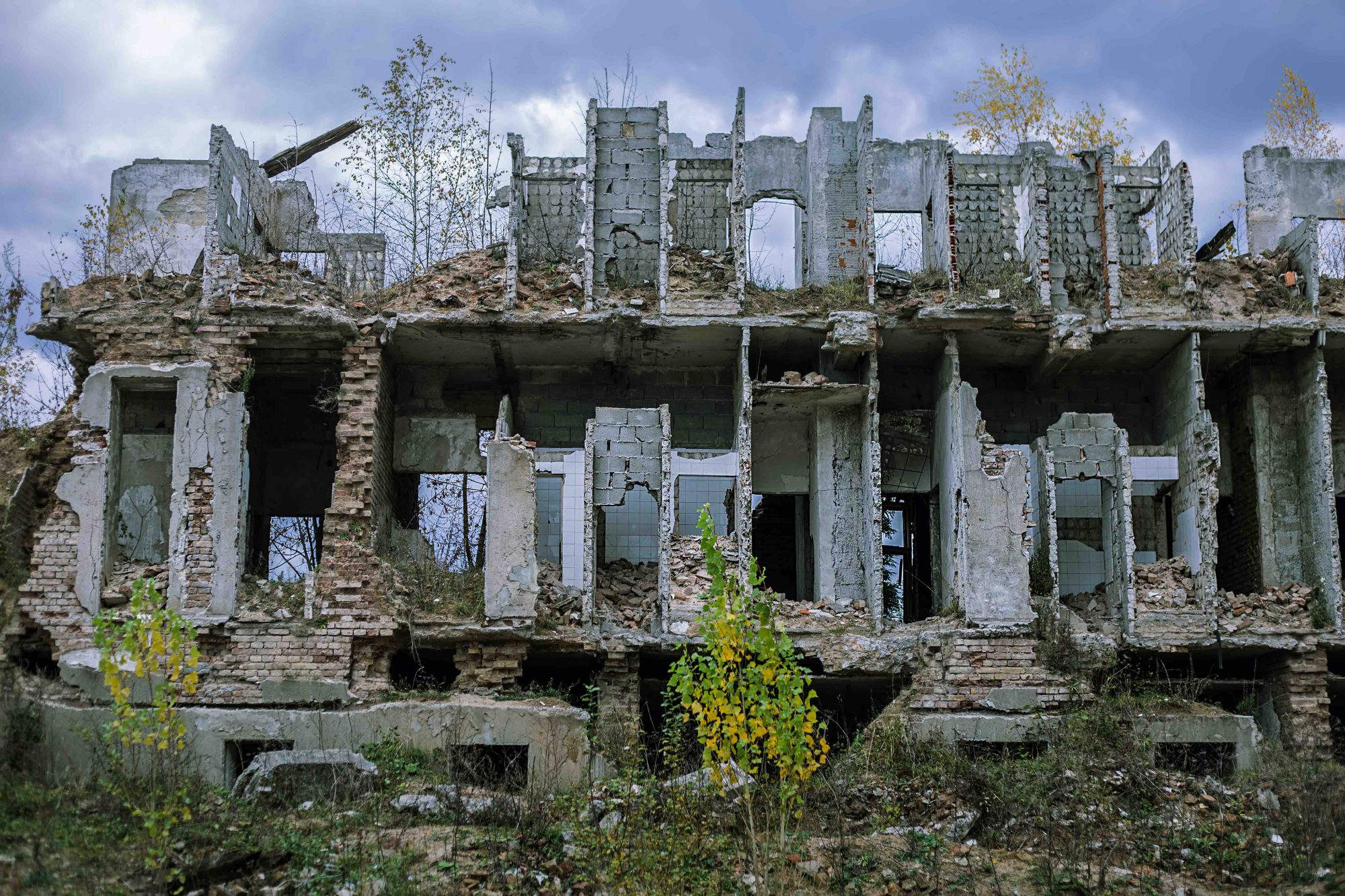
European Union Established
In November 1993, the Maastricht Treaty went into effect, creating the European Union, made up of 28 European countries. The EU seeks to promote peace and prosperity in Europe, increasing the ease of trade and transport by allowing citizens of EU nations to move freely from one nation to another. Most EU countries use the Euro as their currency.

Ethnic Groups Murdered in Rwandan Genocide
Over a period of 100 days, between 800,000 and 1 million people were murdered in a genocide perpetrated by the Hutu people group seeking to exterminate Tutsi, Twa and moderate Hutus. The Belgian colonial government considered Tutsis racially superior to Hutus and required all Rwandans to have papers marked by ethnicity. IMB missionaries serving in Rwanda evacuated, and returned following the genocide to find their homes looted and the country in ruins.
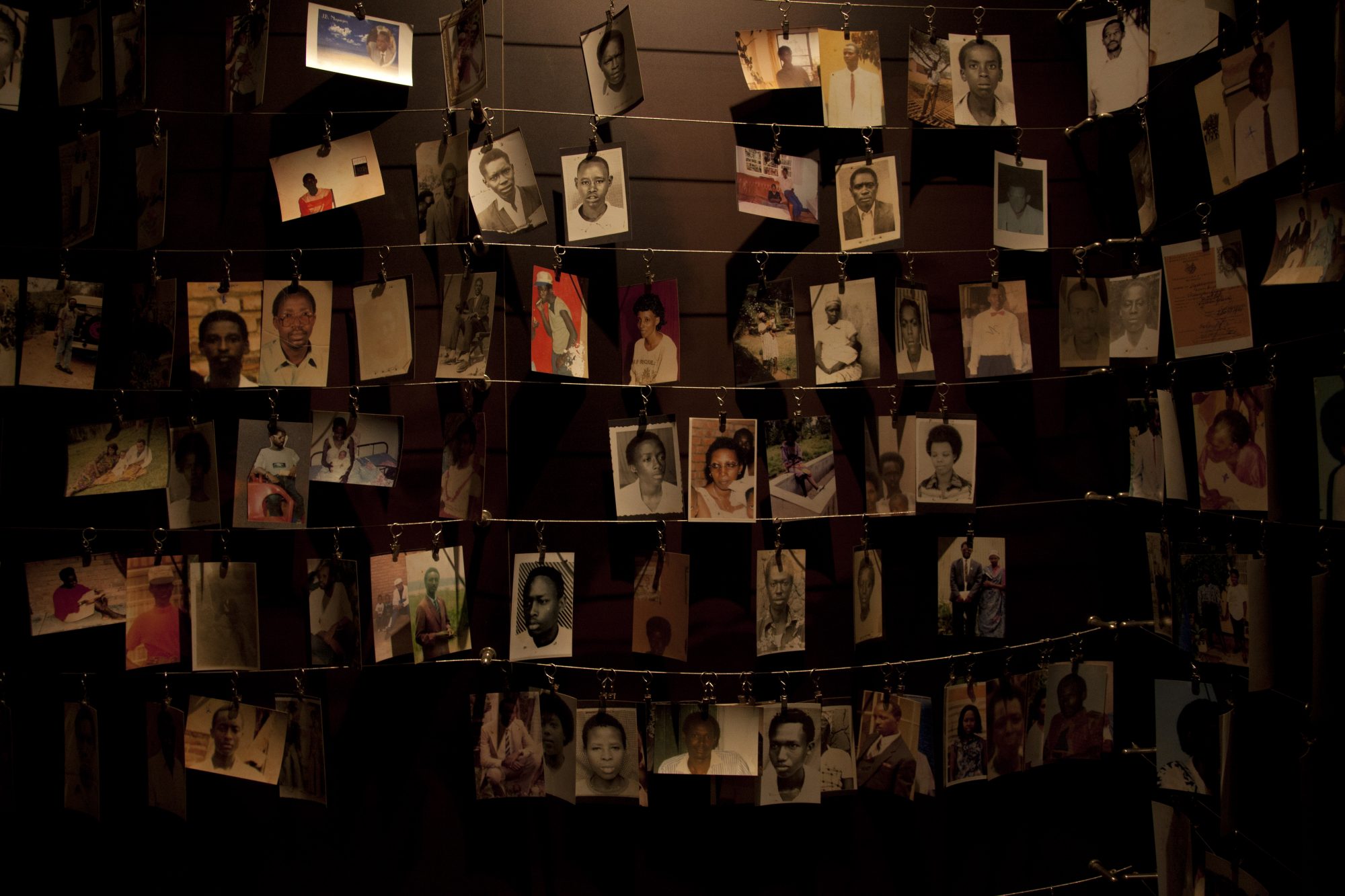
Missionary Profiles
Honoring Faithful Service
George and Veda Rae Lozuk
George flicked on the light to their house and saw mud covering everything in sight: walls, tables, chairs. Even the picture frames on the walls dripped mud. As he and Veda Rae took in the mess, they wondered where their children were.
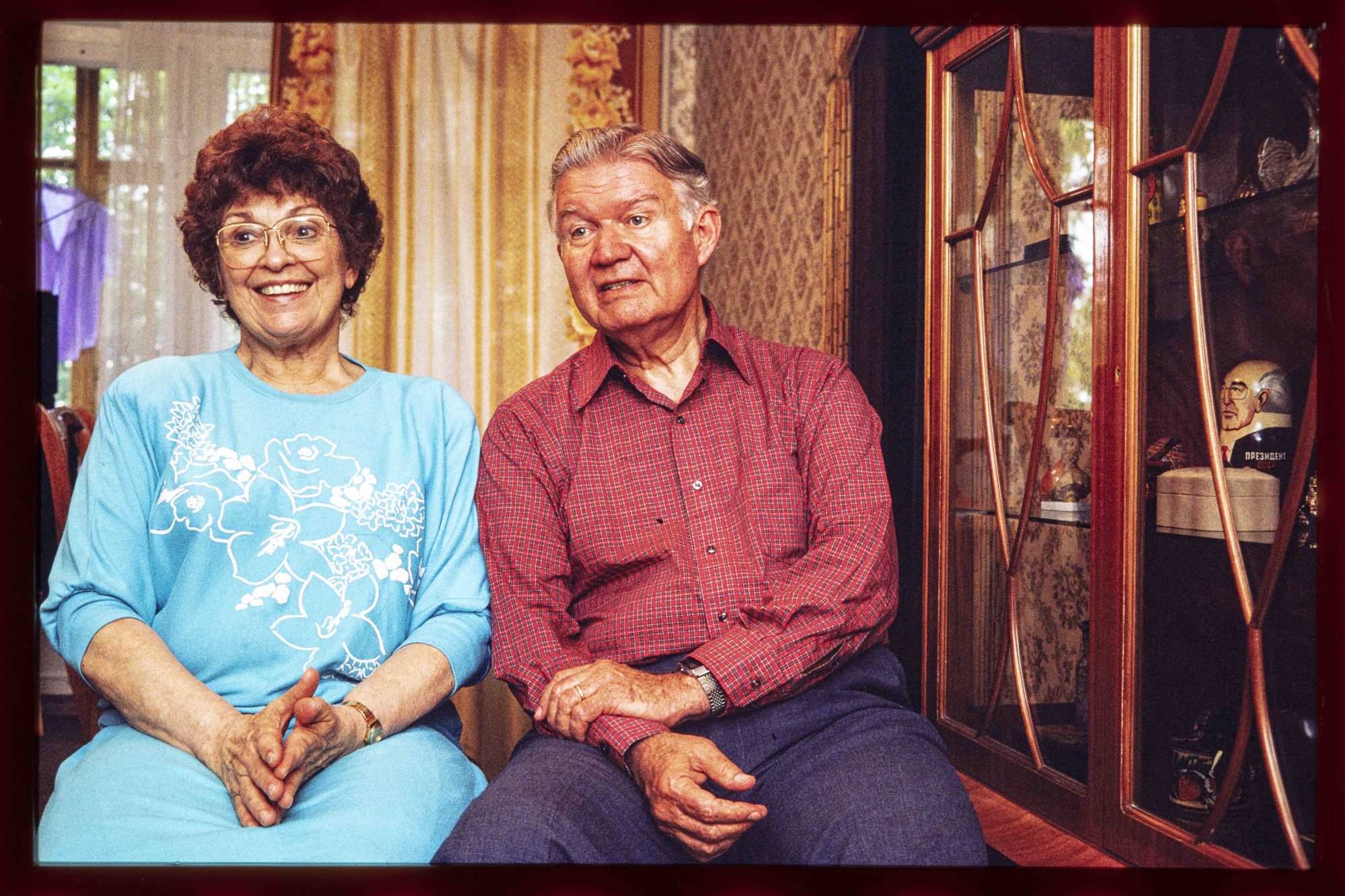
Jeff and Barbara Singerman
The Singerman family, including the kids, asked God to give them a clear invitation to plant churches in Benin, the birthplace of voodoo.
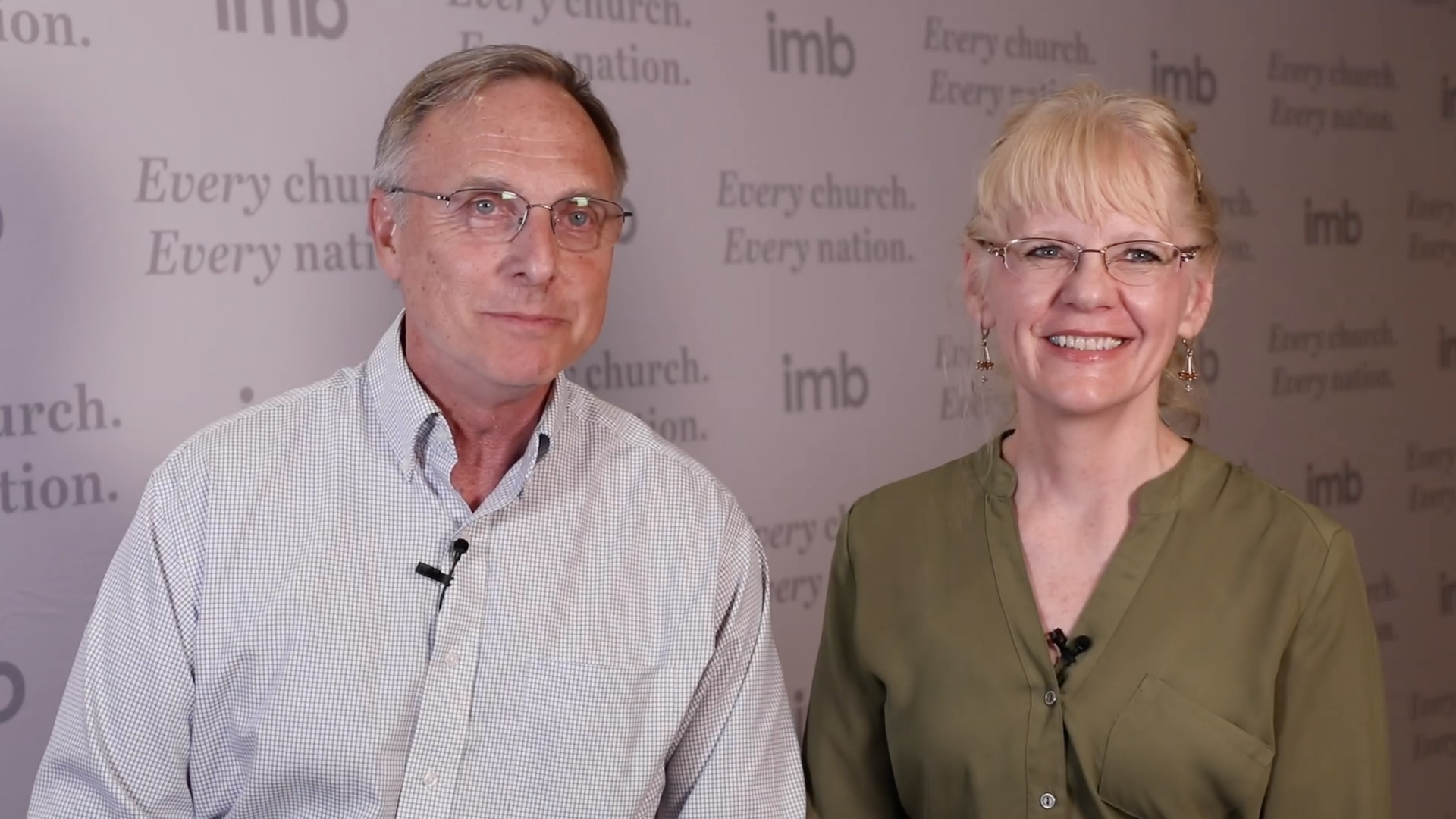
Von and Marge Worten
In one year, 27 Southern Baptist missionary families lost their visas to stay in Indonesia. The Wortens had been there for 23 years, so they felt the heavy and significant loss. What did God have in store for them now?
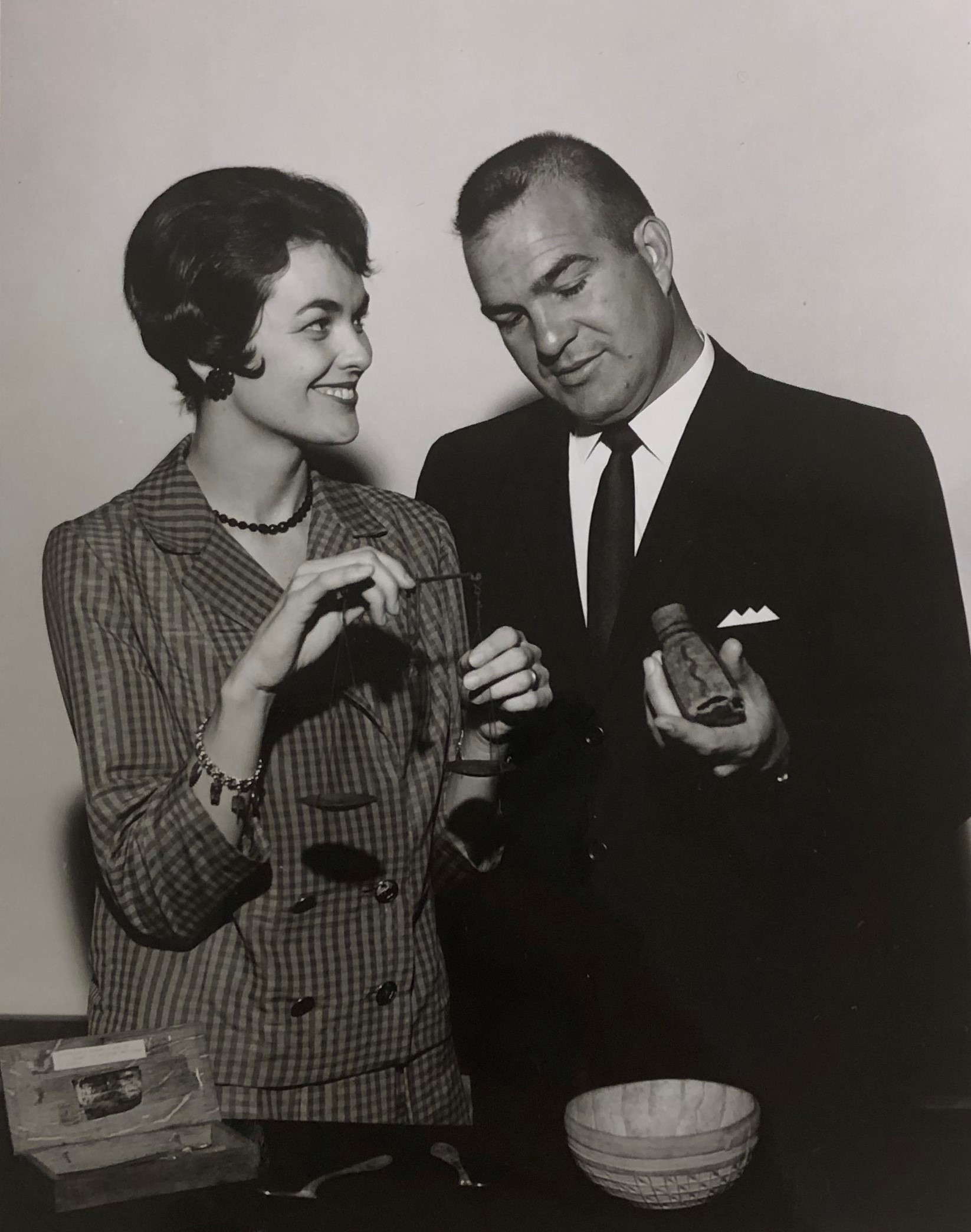
Yvette Aarons
Yvette was born Deaf, but she never doubted God’s call to foreign missions, even after the Foreign Mission Board refused to send her.

God at Work
Stories From The Field
Bangladeshi Villagers Witness God’s Power
Though the haze of alcohol fogged his mind, old Kumar saw clearly enough to know something was happening in the next village. Something powerful. ...
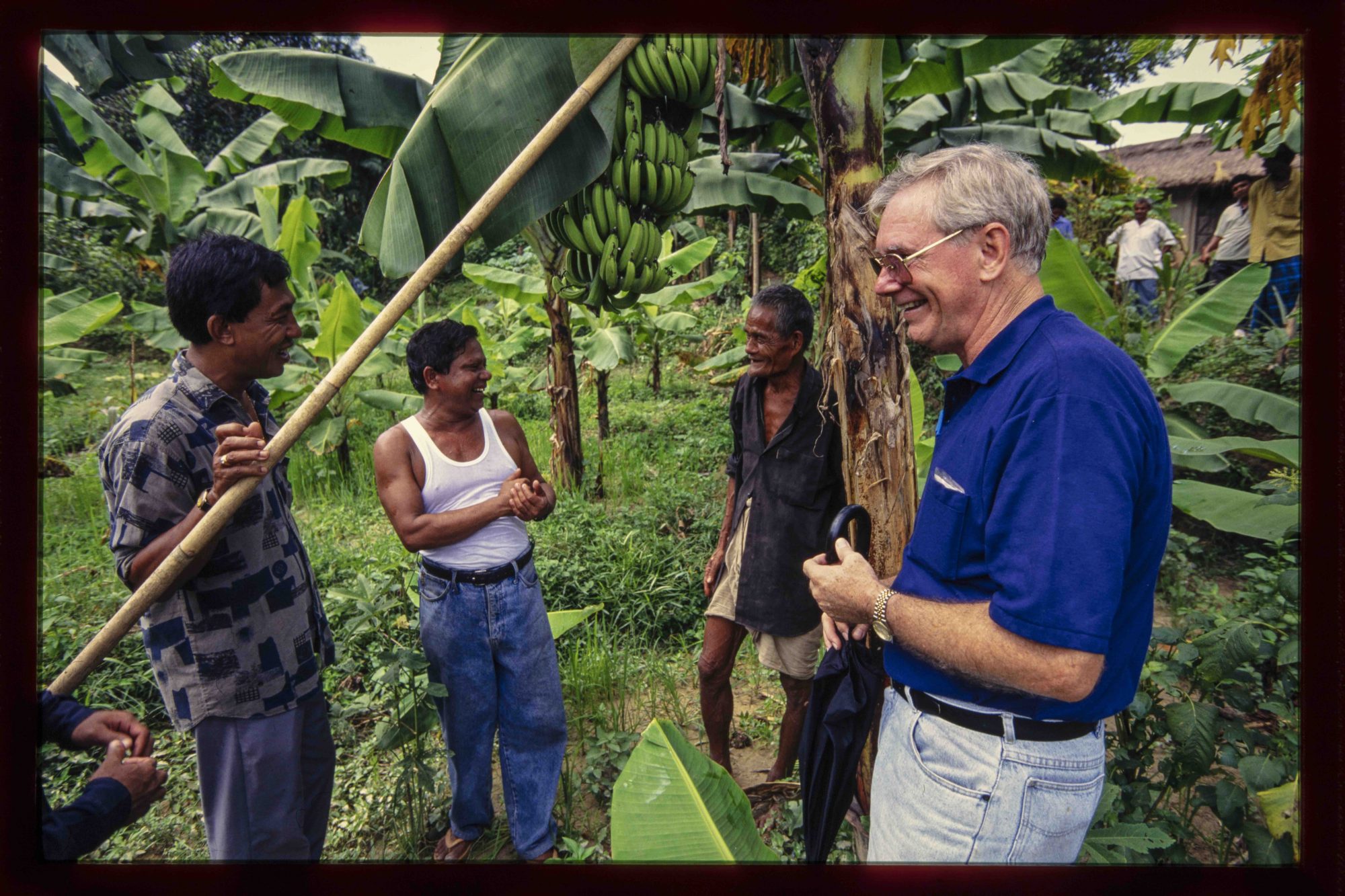
Crying Translator
As Elaine shared the Bible message, her translator stood silently. Puzzled, Elaine turned, and saw the translator weeping.
Rwandan Orphan Gets a Home
Before she had a name, even before she drew her first breath, Annamary Neema suffered. ...
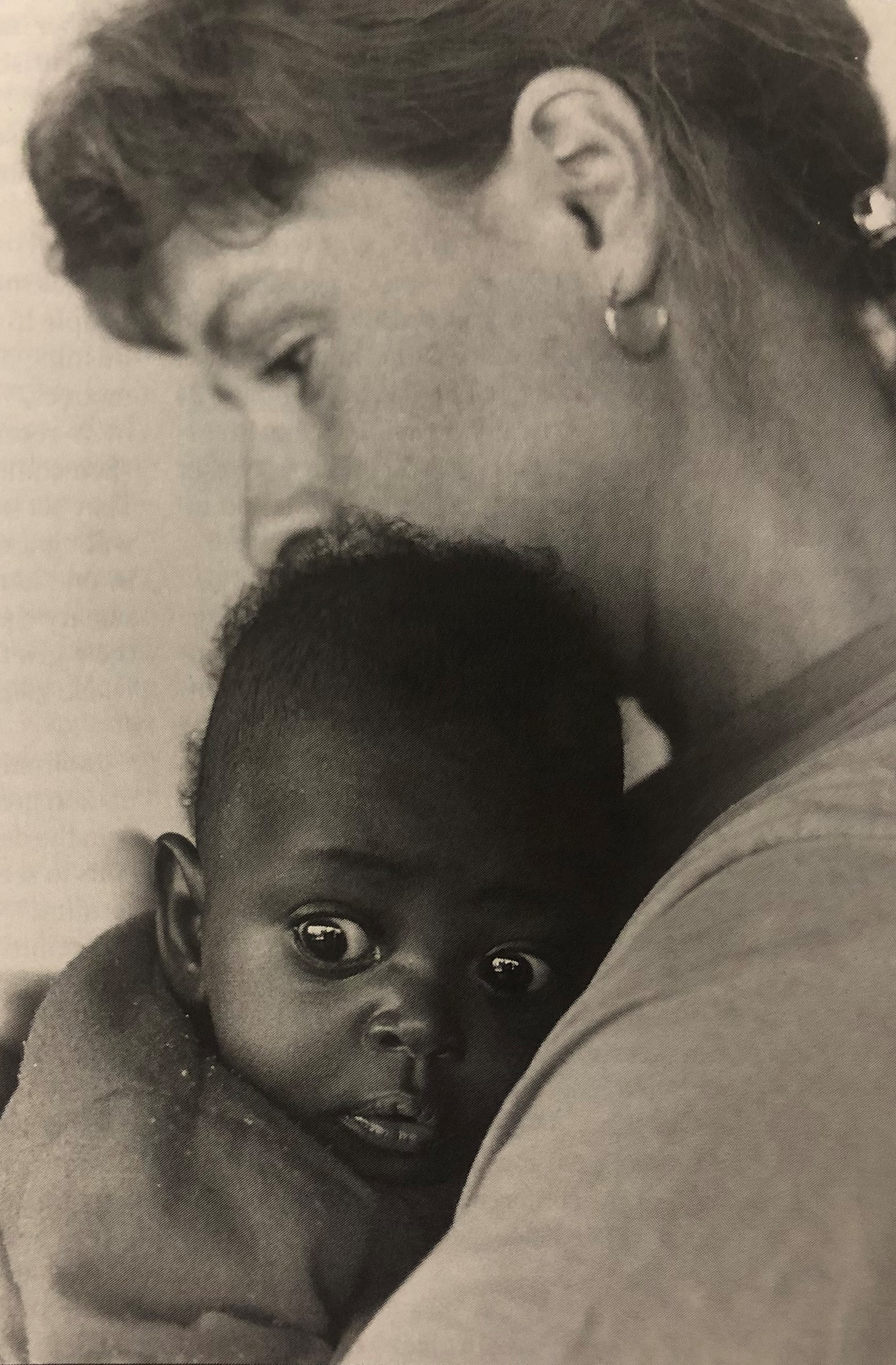
Taking the Plunge in the Former Soviet Union
In a flurry of laughter, two young Tatar women whisk “Jennifer” from a living room chair into the kitchen for a round of tasting. ...

Starting a Zero to One Effort
In new ministry areas, it's beautiful to see even one person come to faith. Prayer is the backbone of these efforts.


